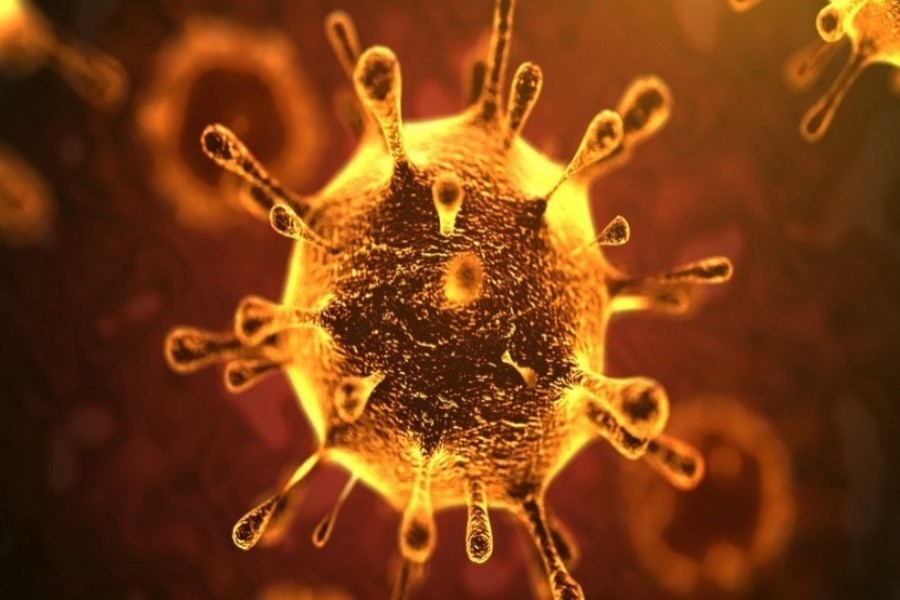With the death toll from the Covid-19 already crossing 1.1 million and over 40 million infected, the world is now witnessing a race to produce a vaccine aimed at protecting humanity from the pandemic. Until an effective vaccine is made and the majority people are inoculated, it will not be possible to slow down the pandemic's apparently unstoppable advance.
As it is a kind of scourge that affects all equally regardless of colour or creed, the natural expectation is that humanity would unite and fight as one against the pandemic.
But no, things have not evolved exactly the way it ought to have.
Some rich and powerful nations are doing their research to produce one or more vaccines with exclusive control over their products. Worse, they are also trying to make deals with multinational pharmaceutical companies so that once the vaccines they are doing research on proves to be successful, they would take the entire or majority share of the products so developed.
Amid this unhealthy competition among political leaders centring around a serious health issue that affects humanity everywhere, scientists have been working silently as they always do to develop vaccine(s) to free the world of this deadly virus. So far over 150 vaccine candidates are awaiting various stages of trials to prove their efficacy.
However, research and trials with these vaccine candidates are not being done in a coordinated and collaborative manner. As a result, there is a possibility of avoidable duplication of these vaccine candidates due to lack of sharing of information among the competing research establishments across the world. This is unfortunate as it is an instance of unnecessary wastage of human creative energy as well as resources. Had there been cooperation and sharing of information regarding research each nation is conducting, the number of vaccine candidates could be narrowed down to a potential few so that the research could be more focused, useful and less wasteful.
So far, Pfizer, the US drug maker in partnership with Bio Tech SEof Germany has developed a vaccine awaiting emergency use authorisation (EUA). If authorised, US public will get this rather costly vaccine in November.
US biotech company Moderna's mRNA technology-based vaccine (it is fundamentally a new approach to drug-making) candidate is in the phase-III of trial and may soon release its safety data from clinical trials. The research is being generously funded by the US government and as such under political pressure for early release.
The UK-based Astra Zeneca jointly developed with Oxford University is also in its phase-III trial stage. Some countries including the USA are trying to make deals to reserve large doses of the vaccine for themselves.
Another candidate being developed by Johnson and Johnson, a US-based company, has hit a snag at its early trial phase.
Meanwhile, the Chinese drug-makers including China National Biotech Group (CNBG), Can Sino Biologics and Sinovac have been working on four vaccine candidates and have granted emergency use authorisation (EUA) for them. Sinovac and CNBG may have their trial data by next month.
The vaccine candidate by Russia's Gamaleya Institute has started last-stage trial on some 40, 000 volunteers and is expected to have early data soon. The country is learnt to have developed three vaccine candidates so far.
China has committed that its successful vaccine would be open for all humanity and even for the American people subjected to US Federal Drug Administration's approval and that the country is ready to apply to FDA for approval. Even if China's pledge about making its vaccine available for all has an implicit challenge of political nature to the US president's go-alone, America-first policy, still it is a laudable one. All the countries in the lead in vaccine research should make similar pledges so that despite the costs involved in research and trials before the vaccines would hit the market, the vaccines may reach free of cost every corner of the globe under the aegis of the WHO.
Sadly though, the world's leading nation in the vaccine research, the USA under president Trump, has stopped all cooperation including its financial support to this multilateral agency concerned with public health globally!
Small wonder that the UN Secretary General Antonio Guterres denounced the cutthroat competition among the world's rich nations over their policy of grabbing the fruits of research on vaccine against Corona virus and getting the first successful one for themselves.
The UN Chief even censured the nations engaged in such acts and termed their attitudes 'vaccinationalism'. This is unheard of in modern history that some governments are trying to monopolise research products to fight a disease that threatens entire humanity.
In cases, as in the USA, the research and regulatory establishments are even being pushed to expedite work to produce a vaccine within a particular time frame to serve political ends. That in other words is asking a scientific process to skip necessary steps to produce a result earlier than the appropriate time for political opportunism.
The irony is, the main point that all these 'great nations' are missing is that one cannot win the battle alone against the pandemic. The concept of an isolated people is absurd in the present-day interconnected world. So in the ultimate analysis narrow nationalism over vaccine is self-defeating. The UN chief said, 'None of us is safe, until all of us is safe'.
Such behaviour on the part of the developed nations runs the risk of putting billions in harm's way especially in the poor countries.
It is natural that nations, especially powerful ones, will clash over interests of business and politics. But they must unite against the common enemy of all, the pandemic.


